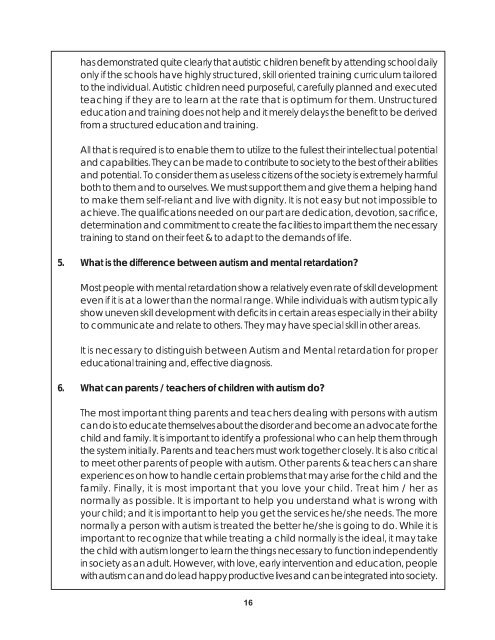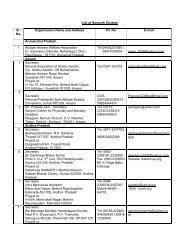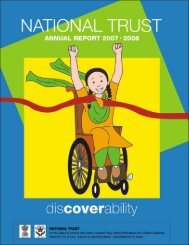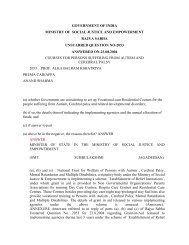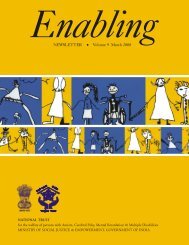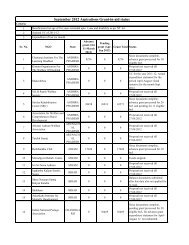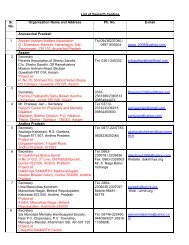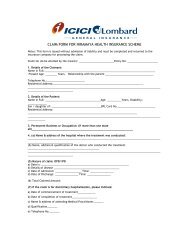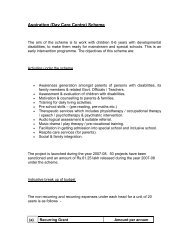INTRODUCTION - National Trust
INTRODUCTION - National Trust
INTRODUCTION - National Trust
Create successful ePaper yourself
Turn your PDF publications into a flip-book with our unique Google optimized e-Paper software.
has demonstrated quite clearly that autistic children benefit by attending school daily<br />
only if the schools have highly structured, skill oriented training curriculum tailored<br />
to the individual. Autistic children need purposeful, carefully planned and executed<br />
teaching if they are to learn at the rate that is optimum for them. Unstructured<br />
education and training does not help and it merely delays the benefit to be derived<br />
from a structured education and training.<br />
All that is required is to enable them to utilize to the fullest their intellectual potential<br />
and capabilities. They can be made to contribute to society to the best of their abilities<br />
and potential. To consider them as useless citizens of the society is extremely harmful<br />
both to them and to ourselves. We must support them and give them a helping hand<br />
to make them self-reliant and live with dignity. It is not easy but not impossible to<br />
achieve. The qualifications needed on our part are dedication, devotion, sacrifice,<br />
determination and commitment to create the facilities to impart them the necessary<br />
training to stand on their feet & to adapt to the demands of life.<br />
5. What is the difference between autism and mental retardation?<br />
Most people with mental retardation show a relatively even rate of skill development<br />
even if it is at a lower than the normal range. While individuals with autism typically<br />
show uneven skill development with deficits in certain areas especially in their ability<br />
to communicate and relate to others. They may have special skill in other areas.<br />
It is necessary to distinguish between Autism and Mental retardation for proper<br />
educational training and, effective diagnosis.<br />
6. What can parents / teachers of children with autism do?<br />
The most important thing parents and teachers dealing with persons with autism<br />
can do is to educate themselves about the disorder and become an advocate for the<br />
child and family. It is important to identify a professional who can help them through<br />
the system initially. Parents and teachers must work together closely. It is also critical<br />
to meet other parents of people with autism. Other parents & teachers can share<br />
experiences on how to handle certain problems that may arise for the child and the<br />
family. Finally, it is most important that you love your child. Treat him / her as<br />
normally as possible. It is important to help you understand what is wrong with<br />
your child; and it is important to help you get the services he/she needs. The more<br />
normally a person with autism is treated the better he/she is going to do. While it is<br />
important to recognize that while treating a child normally is the ideal, it may take<br />
the child with autism longer to learn the things necessary to function independently<br />
in society as an adult. However, with love, early intervention and education, people<br />
with autism can and do lead happy productive lives and can be integrated into society.<br />
16


